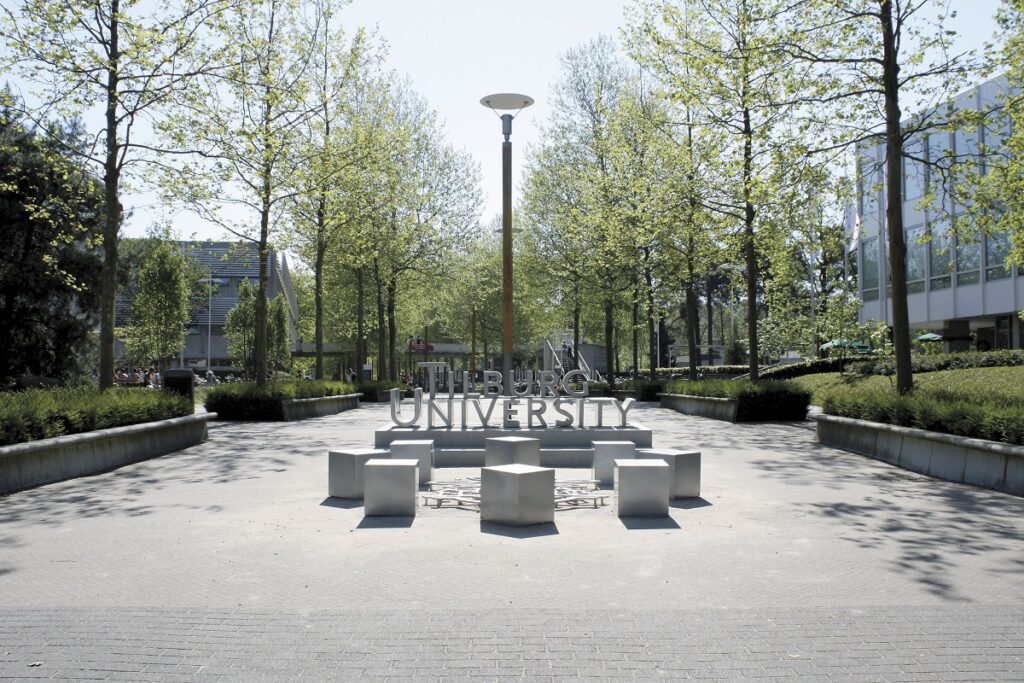Tilburg University should uphold its own values and suspend ties with Israeli universities
‘The Executive Board’s response to the recommendation to suspend ties with Israeli partner universities is infuriating,’ writes alumnus Omer Omer. ‘The lack of concrete commitment voids our university’s core values of their meaning at precisely the time they should be upheld.’

‘Ours is a university to be proud of!’ Says Wim van de Donk, Rector Magnificus of Tilburg University. As an alumnus, I can say that Tilburg University’s response to the genocide in Gaza has quickly eroded my pride in my alma mater. How can I be proud of a university that has not only abandoned its students, staff and alumni, but its core principles too in a time of global crisis?
The Tilburg University Core Values
Our ‘Four Cs’—caring, connected, curious, and courageous—are supposed to reflect what Tilburg University stands for. The University commits to mutual respect, sincerity and accountability (caring); creating safe spaces for dialogue (connection); transcending boundaries and developing critical insight (curiosity); and, most notably ‘daring to take … bold decisions … stop things … [and] enter into difficult conversations.’
In light of the unfolding genocide in Gaza, I have witnessed the Executive Board (‘the Board’) of Tilburg University warp, weaponize, or outright abandon these core values. From a jaundiced attitude to campus protests to piecemeal bureaucratic gestures, he Board has made it clear that our university’s core values mean nothing.
This is the impression that I and many fellow alumni, students and staff hold of the Response by the Board following to the advice by the Advisory Committee on Collaborations.
The Response: vague, insubstantial commitments during a global crisis
In its Advice, the Committee highlighted a close link between Tilburg University’s partner universities and the Israeli military, for which these partners ‘[do] not take a sufficiently critical stance.’ This raises a moral imperative to cut ties with such institutions not committed to human rights and the rule of law in their education.
Despite this moral duty, Tilburg University’s response has been slow, passive and abstracted—neglecting not only its SWANA (South West Asia and North Africa) students, staff, and alumni but also the wider concerned community.
The Executive Board’s Response begins with a passive appeal to hope as the University supposedly monitors the current ceasefire–the same one that violated to the tune of over 100 killed and 800 injured Palestinians and continued humanitarian aid obstructions in Gaza.
Such an appeal, while gracious, cannot overlook the lack of concrete steps the University has taken to stop contributing to the conflict in the first place.
The vacant virtue-signaling is reiterated via the ‘important role’ envisioned for universities in the peace process. Without severing activities that contribute to the conflict we would not be facilitating future peace. Without taking accountability such a commitment to the future cannot be taken in earnest.
Instead, the language employed in the Response is steered by dishonest framing and a lack of moral, let alone legal clarity: The Board, for one, is ‘horrified’ by the violence ‘initiated … by Hamas.’ Such framing:
- omits addressing specific atrocities before or after 7 October 2023 and their perpetrators, namely those suffered by the Palestinian population. The Board ‘vigorously condemns,’ in one part, ‘that so many innocent people have become victims’ (who are these victims? what are they victims of exactly?) but also ‘that hostages are still being held.’;
- isolates Hamas as seemingly the principal instigator of the violence, obfuscating the role of the Israeli government, military, and settlers in violence both before and after 7 October 2023;
- plays down ‘associated violations’ against ‘so many innocent people’ without acknowledging the gross asymmetry in terms of human cost and social–historical context before and after 7 October 2023.
The Executive Board lauds its own commitment to ‘do justice’ to the Committee’s advice along these morally and legally ambiguous lines. To this end, the Committee had outlined concrete steps for the Board:
- suspend sending students and staff to Israeli partner universities;
- suspend collaborative activities with research partners in Israel under investigation;
- apply the precautionary principle to ensure that education and business activities do not contribute to human rights violations;
However, the Board felt that the ‘strong message’ required by the Commitee against our partner universities means to first allow them to condemn these atrocities—the ones they directly contribute to. The Board took relatively clear, concrete calls to action and opted instead to open ‘dialogue … as soon as possible’ when it could have done so at any point over the past sixteen months.
The Board notes that it would be ‘difficult’ to continue a collaboration that involves (direct) involvement in human rights violations. However, since the Committee did not find such evidence in the University’s current collaborative projects their proximity to the Israeli military is apparently a cause for concern, but not immediate action.
In this sense, the Board tolerates indirect involvement with partners that the Commitee considers ‘bear co-responsibility for the alleged violations’—thereby accepting institutional ties to institutional gross human rights violations. This should not be tolerated any further.
In keeping with the ‘precautionary principle’ that the Commitee recommended, a direct causal link between Tilburg University’s collaborations and the human rights violations distorts the principle’s very purpose. To borrow a general definition:
Where threats of harm … exist, scientific uncertainty will not be used as a reason to postpone the taking of measures for the protection of human life or health or the environment. – Jaye Ellis & Alison FitzGerald
The basic premise is to suspend a policy without delay if there is a likelihood of contributing to harm. Even though the Commitee did not find evidence of direct involvement by way of our collaborations, the indirect harm of legitimizing and advancing scientific research at an institution that does directly contribute to gross human rights violations cannot be escaped.
Moreover, any further cause for research or due diligence regarding this indirect contribution cannot wait until our partner institutions ‘convincingly distance themselves from … the current Israeli government.’
Conclusion
The Executive Board’s response to the Advisory Committee’s recommendation to suspend ties with Israeli partner universities is infuriating and absurd. The Committee provided a clear path to rebuilding trust with concerned students, staff, and alumni, yet the Board’s refusal to act exposes a blatant disregard for its own core values and a failure of moral responsibility.
The Executive Board pretends to ‘care’ only when concerns can be dismissed with thoughts and prayers, feigns ‘connection’ through vague, non-committal action, becomes ‘curious’ about the future only by ignoring present harm, and claims ‘courage’ only when action is easy to sell. In truth, it is uncaring, tolerates critical thinking only when palatable, refuses to challenge its own norms, and offers empty gestures until it can be even less courageous in the future.
So no, Rector Van de Donk— this is not a university to be proud of. The Executive Board’s Response to the Committee’s recommendations is disingenuous at best and disparaging overall. The lack of concrete commitment voids our university’s core values of their meaning at precisely the time they should be upheld.
I invite you, and the rest of the Executive Board, to brush up on your ‘4 C’s’ and make Tilburg University an alma mater I can truly be proud of. Your actions speak louder than words.
Omer Omer studied Global Law and International & European Law at Tilburg University. Omer was a board member and president of Tilburg Model United Nations, and a co-founder of the African Student Association Tilburg. Omer participated in various actions in support of Palestine Solidarity Tilburg (PST), but is not directly affiliated with PST. He currently practices immigration law as a jurist in The Hague.






